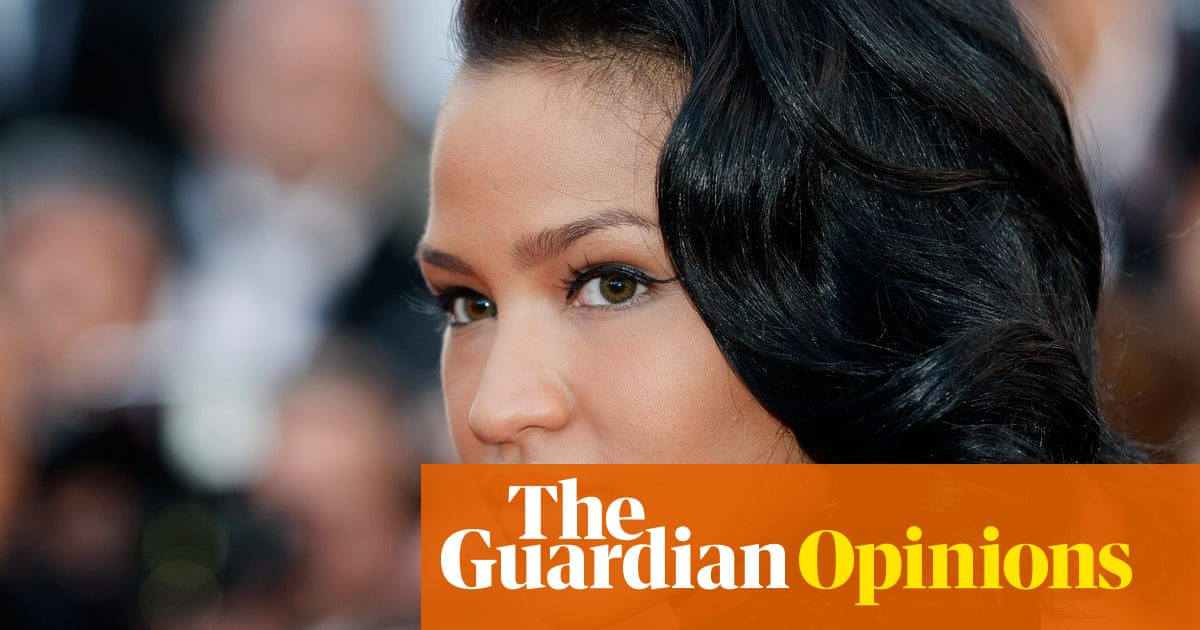Sean “Diddy” Combs’s sex-trafficking and racketeering trial is under way, and the music mogul’s lawyers gave us a glimpse into what their strategy would be during jury selection last week, when they finally admitted that he was violent toward his ex Cassie Ventura. But now they’re claiming that the violence was mutual.
In astatementto the judge, the defense attorney Marc Agnifilo said they plan to “take the position [that] there was mutual violence in their relationship”. Combs’s lawyers also describe Ventura, the prosecution’s star witness, as “strong” with “a nature of violence”, and “capable of starting physical confrontation”.
This is classic men’s rights fare, and now is a great time to remind everyone that mutual abuse isn’t a thing – and it is extremely dangerous to allow celebrities to normalize it.
Most experts in mental health and intimate partner violenceagreethat there is no such thing as mutual abuse, despite how popular the term has become.Experts note, in fact, that “it is impossible for both members of an unhealthy relationship to have equal power,” that “abusers might use the concept of mutual abuse to blame the people they abuse for their harmful behavior,” and that “victims of abuse may fight back, defend themselves, or attempt to regain a sense of control.”
It’s Amber Heard and Johnny Depp all over again, and it’s no surprise that Combs’s lawyers are deploying the same tactics, seeing how successful Depp’s lawyers were in painting Heard as a violent, unhinged person, and not a victim who was fighting for her life.
Ruth Glenn, the CEO of National Coalition Against Domestic Violence,toldRolling Stone during the Heard-Depp trial: “There is no such thing [as mutual abuse]. You have a primary aggressor and a primary victim … What could be happening is you have a survivor doing what they need to do to defend themselves,” she said. “But when you have clinicians framing it as ‘mutual abuse’, it’s very harmful.”
This demonization of female victims in order to absolve their male abusers works well in a society that already doesn’t believe women, and conveniently refuses to acknowledge how trauma and a tremendous imbalance of power can force them to stay in those violent relationships.
Aside from this unconscionable defence, I’ve also been trying to figure out what to do with all the horrific testimony we’re hearing, the inevitable spectacle that this has become, and the bravery of Combs’s alleged victims who are testifying.
We’veheardthat Combs had Ventura urinated on, forced her to have sex for days with no sleep including while on her period, forced her to have sex with escorts while he watched and recorded, made her carry his guns and beat her at the slightest provocation. I’m not exaggerating when I say the stuff coming out of this trial is some of the most gruesome and horrifying I have ever heard. But Ventura’s bravery in speaking up, in reliving this alleged trauma not just for herself but on behalf of possible victims whose stories may never see the light of day, means that we have a moral obligation to not look away. As the society that made Combs the mogul that he is and enabled him to amass the resources that have now in effect formed a shield around him, it is our job to bear witness in this moment.
Victims of abuse – especially of alleged abusers this powerful – rarely see full justice through the courts. Bill Cosby walks free today, Harvey Weinstein isgettinganother trial and Amber Heard continues to endure harassment from Depp fans while he gets towalkin Rihanna’s fashion show and book newprojects. And if Combs should somehow walk away from all this, then it’s crucial for us to listen to his accusers, for their testimonies to be on public record, and for him to no longer have access, at the very least, to the social and cultural capital that helped allow his alleged behaviour to thrive.
Importantly, this moment also exposes the foundations of systematic abuse. This level of abuse requires a network of enablers, silent witnesses, wilful collaborators, paid professionals and disempowered victims in order to be possible. And as more details emerge in this trial, confronting these stories head on means confronting the culture that allowed for them to begin with.
The game is rigged against women and always has been. We tell women to report crimes and then either don’t believe them, or say they were violent too when they do. And when they don’t report, we question why they stayed in a relationship and tell them that they wanted the abuse.
It’s a shame that society is so bad at protecting women. But knowing what exactly abuse can look like – in all of its twisted, barbaric shapes – and being able to accurately name it is essential to our survival, and more important now than ever.
Tayo Bero is a Guardian US columnist
In the US, thedomestic violence hotlineis 1-800-799-SAFE (7233). In the UK, call the nationaldomestic abuse helplineon 0808 2000 247, or visitWomen’s Aid. In Australia, the nationalfamily violence counselling serviceis on 1800 737 732. Other international helplines may be found viawww.befrienders.org.
